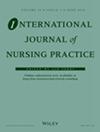The Effect of Stigmatization on Diabetes Health Promotion Self-Care Behaviours and Predictors of Stigma and Self-Care Behaviours in Individuals With Type 2 Diabetes
Abstract
Background
Individuals with type 2 diabetes are at risk of delaying or not performing diabetes health promotion self-care behaviours because of their social or self-stigmatization.
Aim
The study aimed to reveal the effect of stigmatization on diabetes health promotion self-care behaviours and predictors of stigma and diabetes health promotion self-care behaviours in individuals with type 2 diabetes.
Methods
This cross-sectional study included 235 individuals with type 2 diabetes. The Diabetes Stigma Assessment Scale (DSAS) and Diabetes Health Promotion Self-Care Scale (DHPSCS) were used for data collection.
Results
There was a significant, negative correlation between the DSAS and DHPSCS scores. High mean scores on the DSAS and its subscales treated differently, blame/judgement and self-stigma were predictors of a negative effect on diabetes self-care behaviours. Poor health status, alcohol intake and diabetes complications are predictive of stigma. Insulin use and self-monitoring blood glucose are predictors of self-care behaviours.
Conclusion
Stigma negatively affects diabetes self-care behaviours in individuals with type 2 diabetes. Nurses could provide education on improvement of health status, harms of alcohol intake and management of diabetes complications. Counselling for coping with stigma and performing self-care could be provided. Nurses could organize interventions to raise awareness about diabetes in society.

 求助内容:
求助内容: 应助结果提醒方式:
应助结果提醒方式:


